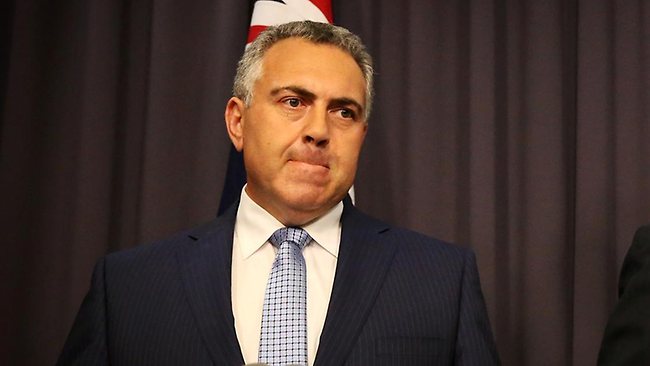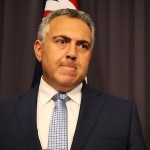
So last week we had Attorney-General George Brandis failing spectacularly to explain what ‘metadata’ meant and the purposes for which ISPs and telecommunications companies were going to collect and keep it, Employment Minister Eric Abetz allowing himself to be portrayed as linking abortion and breast cancer, and Prime Minister Tony Abbott himself explaining that he told conservative newspaper columnist Andrew Bolt about changes to the government’s plans to amend racial discrimination legislation before he informed the public.
This week, on top of that, we have Treasurer Joe Hockey explaining that reintroducing fuel excise indexation is not a regressive tax, because the poor don’t drive very much.
Progressive commentators and Mr. Hockey’s political opponents were up in arms.
But wait, Joe said, here are the facts.
Fact #1
People with higher incomes spend more dollars on petrol than people with lower incomes. The poorest 20% of people in the country spend $16.36 on petrol per week. The richest 20% spend $53.87. So that means that rich people will be paying more fuel excise.
Fact #2
People of higher socio-economic status own more cars than people of lower socio-economic status. Roughly 65% of the most disadvantaged 10% of the nation owns a car. For the most advantaged 10%, that number changes to more like 83%. So that means the more wealthy in the nation have more cars to drive—ergo, they will pay more of the fuel excise.
Unfortunately, these facts weren’t enough to sway opinion; people persistently said Joe was somehow wrong that these facts added up to what he said they did.
Well, what did Mr. Hockey actually say?
“Now, I’ll give you one example: the change to fuel excise, the people that actually pay the most are higher income people, with an increase in fuel excise and yet, the Labor Party and the Greens are opposing it. They say you’ve got to have wealthier people or middle-income people pay more. Well, change to the fuel excise does exactly that; the poorest people either don’t have cars or actually don’t drive very far in many cases. But, they are opposing what is meant to be, according to the Treasury, a progressive tax.”
—Joe Hockey, speaking to 612 ABC Brisbane, 13 August 2014
There are two real problems with this statement.
Problem #1: Irrelevancy
Factually speaking, Mr. Hockey is being accurate. “The poorest people”, relatively speaking, “don’t have cars”. And the ABS data is there to prove it. In support of Mr. Hockey’s conclusion that rich people will pay more of the fuel excise is Fact #1, that wealthier people spend more dollars on petrol.
Problem is, what this doesn’t take into account is the proportion of disposable income being spent on petrol, which for many households is a necessity rather than a luxury, especially in rural and regional areas or growth areas of cities that aren’t well-served by public transport.
Let me put it this way: if you’re a low income household with a disposable income of $475 per week, paying $16.36 on petrol, that’s nearly 3.5% of your income being spent on petrol.
If, on the other hand, you’re a high income household earning a disposable income of $1,814 per week and paying $53.87, that’s just under 3% of your income being spent on petrol. Any excise increase is going to chew up even more of a scarcer resource for low income families.
Problem #2: Perceptions
It took Mr. Hockey two days to issue an apology, described by one newspaper as “grovelling”. It was issued after he’d defended his statements more than once, and after both Education Minister Christopher Pyne and Prime Minister Tony Abbott had both suggested in different ways that the remarks might have been misguided.
Bill Shorten, the Leader of the Opposition, took the opportunity to land a cheap shot, labelling Mr. Hockey the “cigar-chomping Foghorn Leghorn of Australian politics”, but this was one occasion where the majority of the outcry wasn’t raised by the political opposition, or by vested interests, lobby groups, or special interest groups.
The objections this time came from journalists and the general public.
Which, of course, prompted Mr. Hockey to suggest that everyone was against him.
Which, in the end, is the point, isn’t it?
What should have happened
Paula Matthewson has an excellent piece up that neatly outlines how Mr. Hockey could easily have chosen a few different words to represent the same facts, but employ them to support instead of derail his argument for a fuel excise increase. It’s amazing how simple it is to change a few words and change the entire complexion of the debate, but for Mr. Hockey to have been able to do that, he would first need to have possessed the appropriate empathy and understanding of how he and his words are likely to be perceived.
If you’re unable to do that in your own work context, consider borrowing a few people who you trust to be honest with you as a sounding board. When you communicate with people, it’s their perception of what you said (and your intent) that counts, and this is where Mr. Hockey was really tripped up: the things he said were—pretty much—factual, but they indicate to the broader public that Mr. Hockey is either not very bright (because he couldn’t go the extra step to understand that while poorer people pay less toward the fuel excise in absolute terms, they pay a higher proportion of their disposable income), or he is arrogant and out of touch, or both.
When you’re communicating, you need to be aware of far more than just the content—think about how you’re saying it, what the context is, whether you should be making an announcement in person or through a representative, and so on.
Because, as Mr. Abbott will tell you, it’s the information on the outside of the envelope that’s important.






